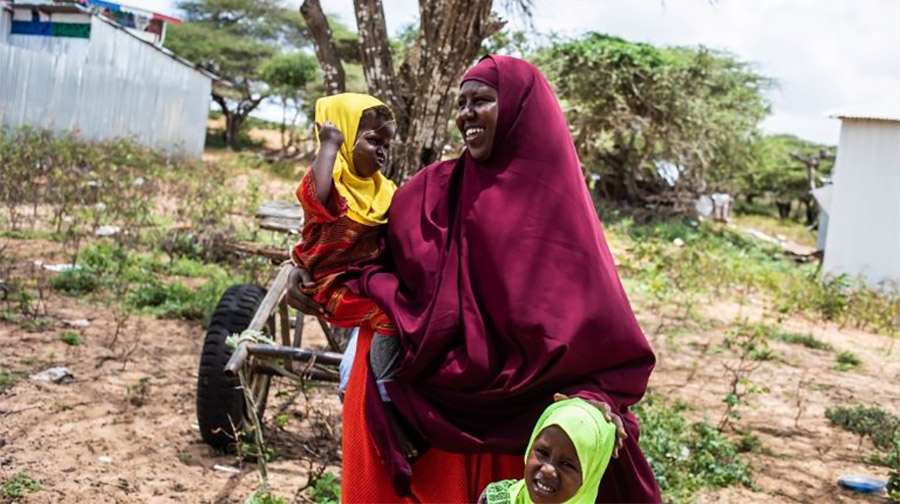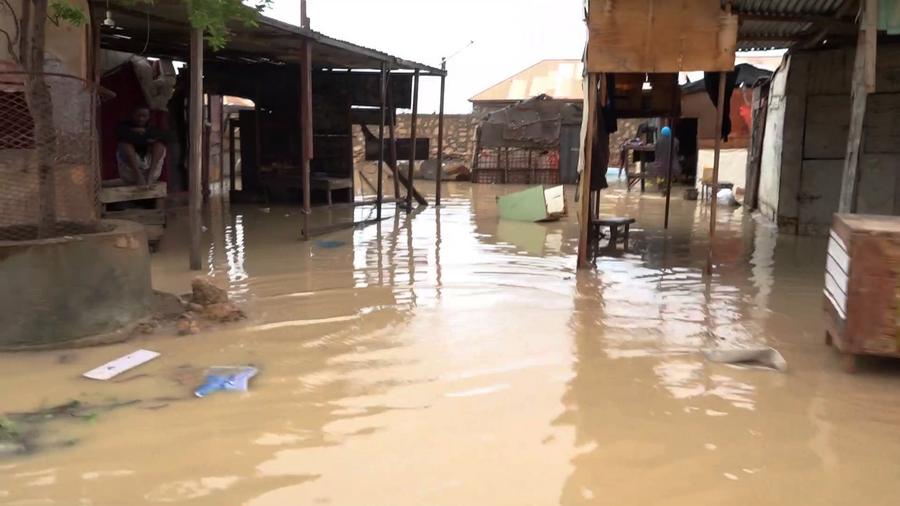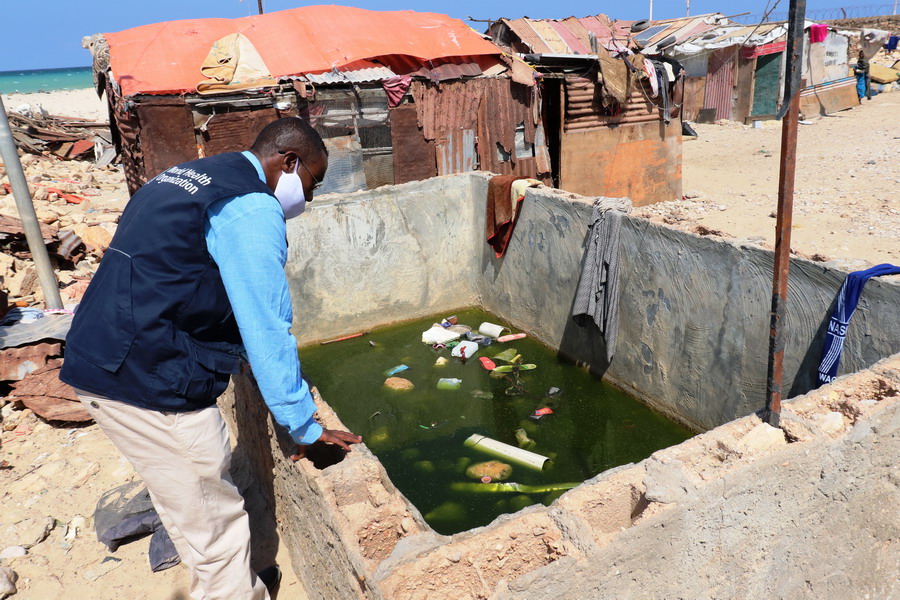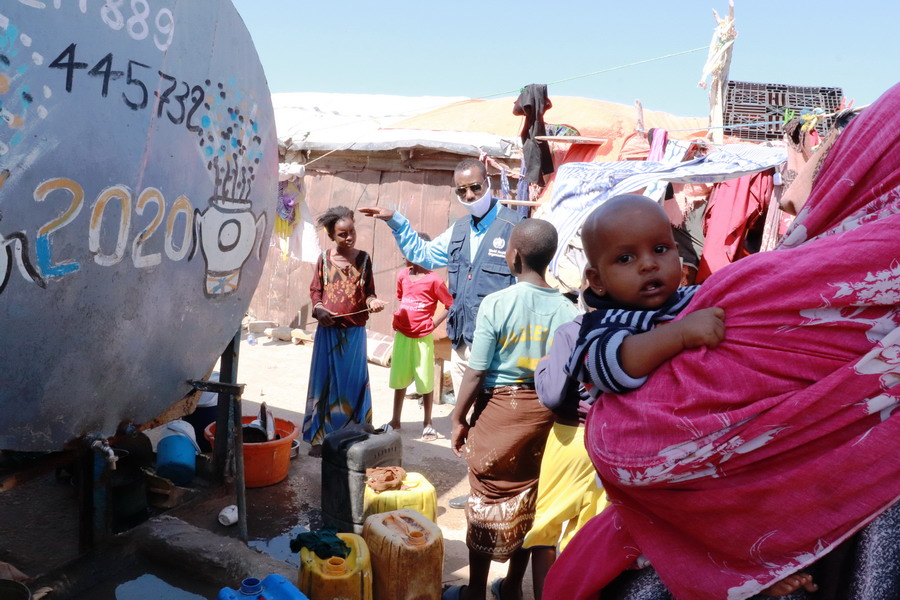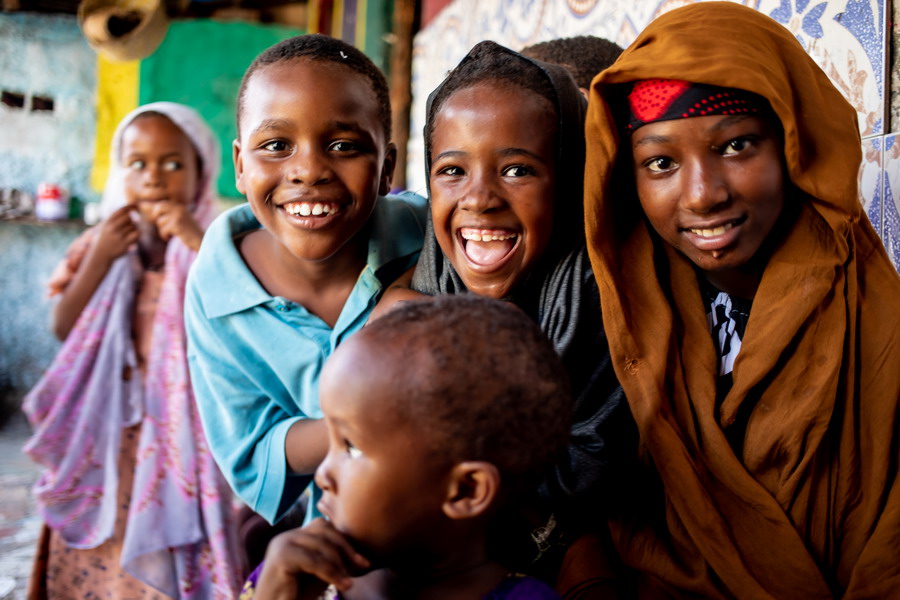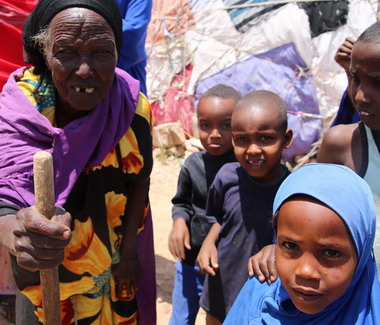
20 December 2020 – On 12 December 2020, in line with global celebrations of Universal Health Coverage (UHC) Day, the World Health Organization (WHO) in Somalia joined the Federal Government of Somalia, the United Nations Children’s Fund (UNICEF) and United Nations Population Fund (UNFPA), to raise awareness about the importance of achieving UHC in fragile and vulnerable states, with the aim of ensuring health for all across the country for everyone, everywhere.
At an event hosted in Mogadishu by the Federal Ministry of Health and Human Services of Somalia, with support from WHO, key representatives from the Federal Government, Federal Member States, Members of Parliament, other government agencies, international and donor community, civil society and representatives of United Nations agencies participated. The aim of the event was to raise awareness of the need to build strong and resilient health systems in Somalia and to mark the anniversary of the United Nations historic and unanimous endorsement of UHC in 2012 calling the countries to provide affordable, quality health care to every person, everywhere (A/RES/74/2).
Befitting the theme of 2020‘s UHC Day- “Health for All: Protect Everyone” the event preceded with a discussion on the UHC road map for Somalia, progress achieved to date and how the government, United Nations agencies and civil society could work together to improve health service delivery, ensure access to care, as well as build stronger health systems as the country recovers from the pandemic of coronavirus disease (COVID-19).
During the event, Dr Fawziya Abikar Nur, the Federal Minister of Health and Human Services of Somalia, said that UHC would strengthen health systems, particularly after having witnessed the impact that health emergencies, such as the COVID-19, had had on the social and economic development of a country.
 Dr Fawziya Abikar Nur, the Federal Minister of Health and Human Services of Somalia
Dr Fawziya Abikar Nur, the Federal Minister of Health and Human Services of Somalia
On behalf of United Nations agencies in Somalia, the acting United Nations Resident Coordinator and the Resident Representative of UNDP Mr Jocelyn Mason spoke on the occasion.
WHO Representative for Somalia Dr Mamunur Rahman Malik emphasized that UHC Day was a reminder to all that health remains a right for everyone and that health care should be affordable and accessible for every citizen in every country. Dr Malik reminded all that increased public financing, monitoring out-of-pocket catastrophic expenditure and government ownership were all critical for achieving UHC.
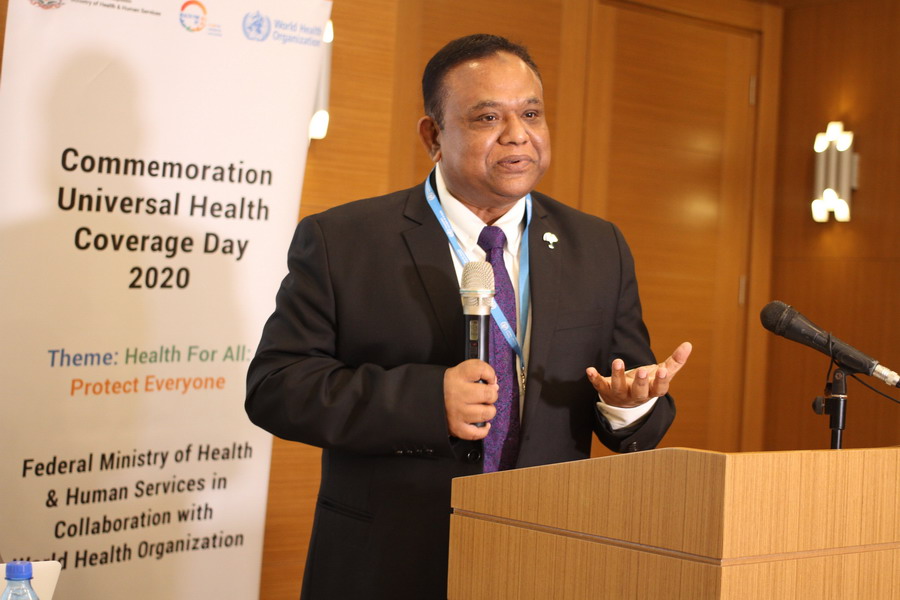 WHO Representative for Somalia Dr Mamunur Rahman Malik
WHO Representative for Somalia Dr Mamunur Rahman Malik
The WHO Representative also emphasized that health services in fragile states like Somalia should be designed and organized in a way that made health care accessible to vulnerable populations, especially internally displaced persons (IDPs), refugees, migrants and people living with disabilities who were often marginalized and excluded from social safety nets.
How the concept of UHC came about
Inspired by and as a follow up to an initial United Nations resolution passed in 2015 on making progress towards the 2030 Agenda for Sustainable Development (A/RES/70/1), the United Nations General Assembly convened a high-level meeting on UHC on 23 September 2019. Held under the theme “Universal Health Coverage: Moving Together to Build a Healthier World,” this meeting aimed to accelerate progress toward UHC, particularly with regard to financial risk protection and access to affordable, quality essential health-care services, in efforts to leave no one behind in the field of health.
Taking the opportunity to build back better
In 2020, in response to the swiftly-spreading COVID-19 pandemic in Somalia, the Federal Government of Somalia and partners launched an urgent and robust response to ensure the country was able to test, track and monitor and care for cases of COVID-19.
Taking into account lessons learned and best practices used to curb the spread of the COVID-19, the Government and partners agreed to use the response to the pandemic as an opportunity to build back better, and recover better and stronger. Since primary health care is the backbone of UHC, interventions to strengthen access to health at community and household levels will be prioritized.
Renewing commitment to UHC
Speaking on behalf of United Nations agencies, particularly UNICEF, UNFPA and WHO, the Resident Representative of UNDP and the acting United Nations Resident Coordinator Mr Jocelyn Mason reiterated that the UN system would redouble its efforts to support the Government of Somalia’s vision and desire to achieve UHC in the country.
He also announced a 3-point plan that UNICEF, UNFPA and WHO in Somalia are partnering and committing to in 2021 to take meaningful strides towards UHC. The 3 agencies, as the principal signatories of Global Action Plan for Healthy Lives and Well-being, have pledged to work together to improve health in 3 critical areas which will be pivotal in reducing deaths from preventable causes, especially among children and women in the country:
First, the 3 agencies plan to scale up the availability of oxygen at the primary health care level, leveraging on the COVID-19 response.
This intervention will save the lives of at least 20-30% of an estimated 15 000 children aged under 5 who lose their lives to pneumonia every year. The intervention will also contribute to the WHO/UNICEF’s Integrated Global Action Plan for Prevention of Diarrhoea and Pneumonia by 2025. Scaling up the availability of oxygen will also improve emergency obstetric care across the country.
Second, in honour of health personnel in Somalia, and given that 2021 has been designated as the “International Year of Health and Care Workers”, UNICEF, UNFPA and WHO will invest in the readiness, education and learning of the health workforce, particularly health workers and midwives at the community level.
These investments have the potential to change the health situation, public and private health systems, and human rights in Somalia forever. Midwifery, in particular, provides a strong opportunity to impact the health and well-being of women and children.
Third, the 3 agencies will strive to ensure every child is immunized against common and preventable childhood diseases, as immunization is a basic pillar of child survival and a strategy to end disease outbreaks.
While Somalia has made some progress in immunization coverage over the past 5 years, vulnerable children living in urban, remote rural and nomadic communities are missed regularly. Furthermore, the 2020 Health and Demographic Survey report for Somalia indicates that only 11% of children aged 12–23 months had received all basic vaccinations. By intensifying cold chain expansion, community engagement and outreach services, as part of the newly updated essential package of health services meant for all, this situation can be turned around. These efforts would also contribute to a successful reproductive health programme aimed at reducing high maternal deaths in the country.
A pledge of health for all and protection for all sounds like a colossal undertaking, and is by no means a small feat. However, with partnerships and action, it can be achieved. As Somalia begins its new journey to rebuild its health systems in the aftermath of the pandemic, on behalf of the UN, Dr Malik urged all health and development partners, civil society and other actors to collaborate, forge strong partnerships, and align their work towards attaining the dream of UHC in Somalia, even in the most fragile and vulnerable settings.
